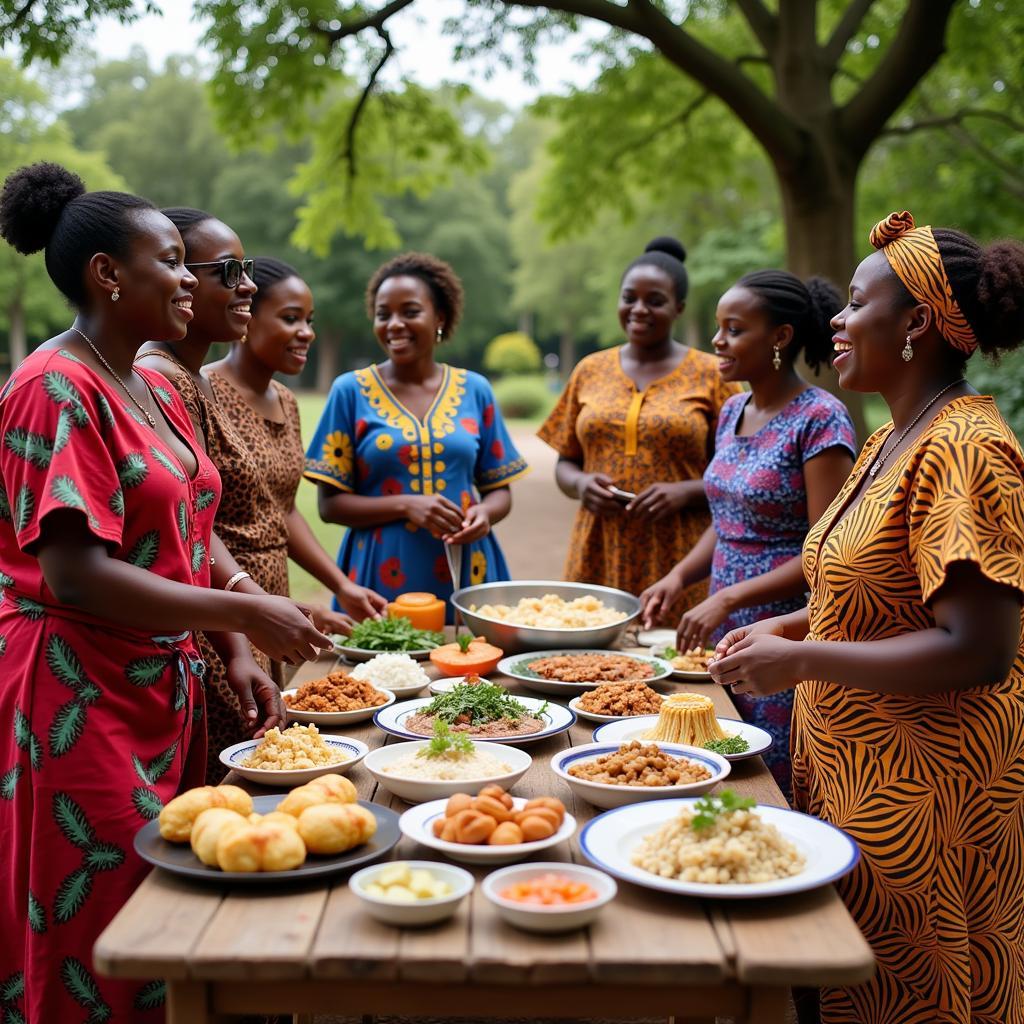The Plight of Abused Women in Africa
The issue of abused women in Africa is a complex and pervasive problem rooted in a confluence of social, economic, and cultural factors. This article delves into the multifaceted nature of this issue, exploring its underlying causes, consequences, and potential solutions. We’ll examine how traditional practices, poverty, and limited access to resources contribute to the vulnerability of women across the continent.
Understanding the Complexities of Abuse in African Societies
Violence against women is a global issue, but in Africa, it takes on unique dimensions. Traditional patriarchal structures often perpetuate gender inequality, contributing to the normalization of violence against women. In some cultures, women are seen as property, and their rights are severely curtailed. This power imbalance creates an environment where abuse can thrive. The lack of economic opportunities for women also exacerbates the problem, making them financially dependent on their abusers and limiting their ability to escape abusive situations.
Cultural Norms and the Silence Surrounding Abuse
Certain cultural practices, while seemingly harmless on the surface, can contribute to the vulnerability of women. For instance, forced marriage, female genital mutilation, and bride price traditions can disempower women and perpetuate a cycle of abuse. Moreover, a culture of silence often surrounds domestic violence, making it difficult for women to speak out and seek help. Shame, stigma, and fear of reprisal often prevent victims from reporting abuse.
The Impact of Abuse on Women and Communities
The consequences of abuse are far-reaching, affecting not only the individual victims but also their families and communities. Abused women often experience physical and psychological trauma, including depression, anxiety, and post-traumatic stress disorder. The impact on their health can also be severe, with increased risk of HIV/AIDS, STIs, and other health complications. Moreover, domestic violence can have devastating economic consequences, limiting women’s ability to work and contribute to their families’ well-being.
Breaking the Cycle of Violence: Strategies for Change
Addressing the complex issue of abuse requires a multi-pronged approach. Education is crucial in challenging harmful cultural norms and promoting gender equality. Empowering women economically through access to education, job training, and microfinance initiatives can also help them gain independence and escape abusive relationships. Strengthening legal frameworks and law enforcement mechanisms is essential to ensure that perpetrators are held accountable for their actions. african beauty teen fucking room
What are the common forms of abuse faced by women in Africa?
Women in Africa face various forms of abuse, including physical, emotional, sexual, and economic abuse.
How does poverty contribute to the vulnerability of women to abuse?
Poverty often forces women into dependent relationships, limiting their options and making them more susceptible to exploitation and abuse.
What role do traditional practices play in perpetuating violence against women?
Some traditional practices, like forced marriage and bride price, can reinforce patriarchal structures and contribute to the normalization of violence against women.
What are the legal protections available for abused women in Africa?
Legal protections vary across African countries, but many have laws against domestic violence and other forms of gender-based violence. Enforcement of these laws, however, often remains a challenge.
african king abusing tribal woman xnxx videos
Conclusion
The fight against abuse of women in Africa requires sustained efforts from governments, NGOs, community leaders, and individuals. By addressing the root causes of this problem and empowering women, we can create a safer and more equitable future for all. By working together, we can break the cycle of violence and build a society where women are valued and respected.
FAQ
- What are the long-term effects of abuse on women?
- How can communities support survivors of abuse?
- What resources are available for abused women in Africa?
- How can men be involved in the fight against gender-based violence?
- What are the legal repercussions for perpetrators of abuse in Africa?
When you need support, please contact us Phone Number: +255768904061, Email: kaka.mag@gmail.com Or visit us at: Mbarali DC Mawindi, Kangaga, Tanzania. We have a 24/7 customer support team.

